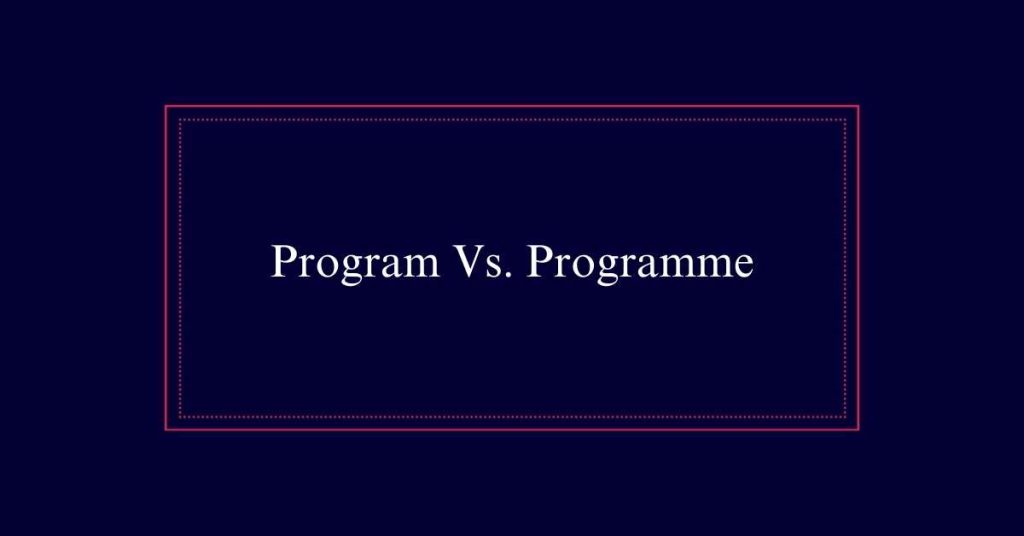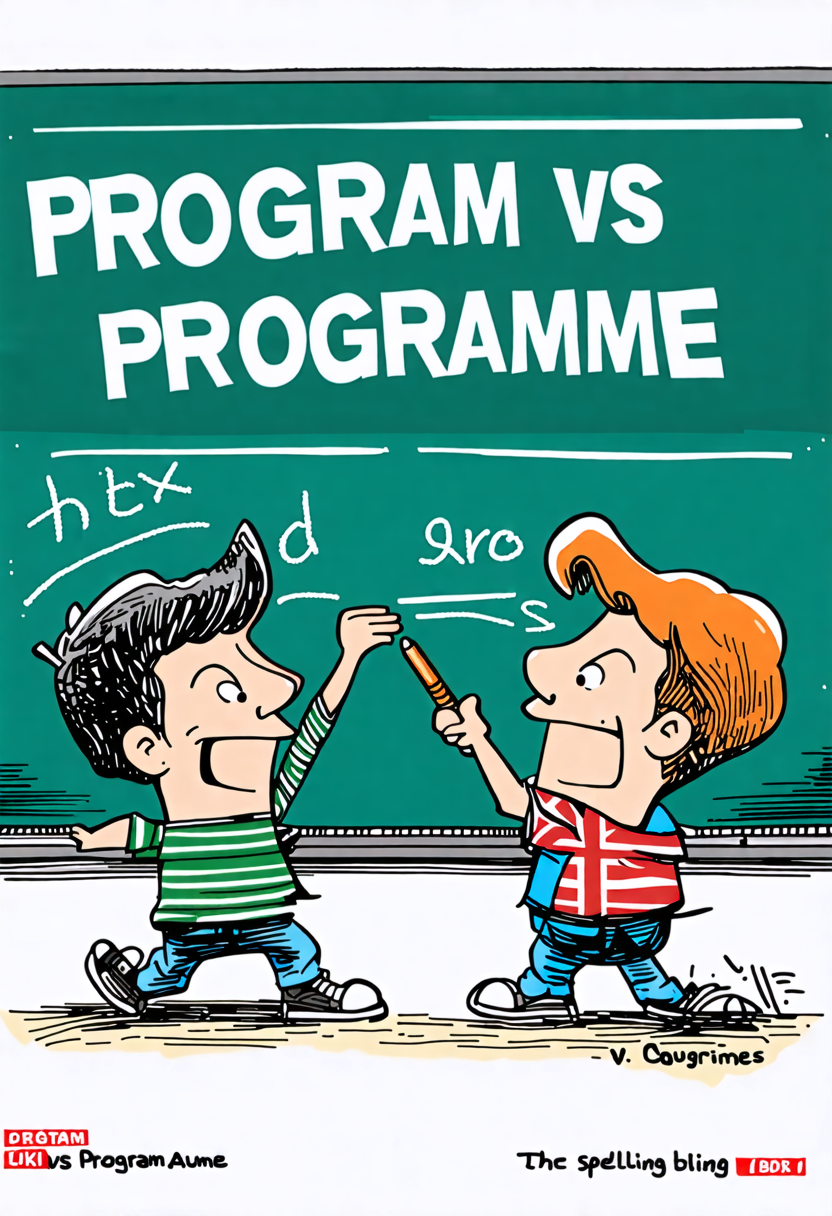Program Vs. Programme
The terms “program” and “programme” differ primarily by regional usage. “Program” is the preferred spelling in American English, while “programme” is used in British English. Both words refer to a structured plan or series of activities designed for a specific purpose, such as educational initiatives, software applications, or event agendas.
When used as a verb, “program” is the correct spelling in both American and British English, referring to setting or modifying systems to achieve specific outcomes.
Definition of Program
A program is a structured plan of actions designed to achieve a specific goal. It encompasses activities or procedures tailored for a particular purpose. Programs can vary widely in scope and application.
For example, a school might initiate a breakfast program to improve student nutrition. In another context, programs can refer to a list of acts or performances at an event.
The term ‘program’ also functions as a verb, meaning to set or modify something to produce a desired outcome. For instance, a computer can be programmed to perform tasks at specific times.
Program as a Noun
The term ‘program’ as a noun signifies a structured series of actions or events designed for a specific purpose. It often refers to organized plans or schedules, such as educational initiatives, software applications, or event agendas.
For instance, schools may implement a breakfast program to guarantee students start the day well-nourished. In the technology sector, a software program is essential for performing specific tasks on a computer. Additionally, a program can refer to a list of acts or performers at a concert or theatrical performance.
Program as a Verb
Programming involves creating a set of instructions to perform specific tasks or produce desired outcomes. As a verb, ‘program’ refers to setting or modifying a system to achieve a particular result.
This can apply to various contexts, such as configuring a machine, scheduling events, or designing a sequence of actions in a workflow. The term is widely used in fields like technology, education, and project management.
For example, one might program a thermostat to maintain a certain temperature. Importantly, in both British and American English, ‘program’ is the preferred spelling when used as a verb.
Usage in Coding
In the domain of software development, ‘program’ denotes the process of writing and testing code to create functional applications. It involves creating algorithms and implementing them in a programming language.
Developers write programs to perform specific tasks or solve problems. The term ‘program’ is universally accepted in the coding community, irrespective of regional spelling differences. When discussing coding, ‘program’ is the standard term used in documentation, academic texts, and professional discourse.

Program in the US
Many programs in the US have greatly influenced reducing crime and improving social outcomes. These initiatives have shown significant impacts on lowering recidivism rates and improving the quality of life for participants.
For instance, programs like the Perry Preschool project have demonstrated long-term benefits, such as reduced chances of incarceration. Additionally, these programs often focus on early intervention and education, which are critical in preventing future criminal behavior.
Examples of Program
Several real-world applications illustrate the profound impact of well-designed programs on various aspects of society. From educational initiatives to software applications, programs play an essential role in fostering development and efficiency. For example, the Chicago CPC program has greatly reduced crime rates among its participants.
Below are some examples:
| Program Type | Example |
|---|---|
| Educational Program | Chicago CPC program |
| Software Application | Microsoft Office Suite |
| Social Welfare Program | Supplemental Nutrition Assistance Program (SNAP) |
| Health Program | Vaccination schedules |
| Entertainment Program | Netflix content recommendation system |
Spelling in American English
American English adheres to specific spelling conventions that distinguish it from other English variants. One of the most notable examples is the use of ‘program’ instead of ‘programme.’ In the United States, ‘program’ is consistently used in all contexts, whether referring to a television show, a computer application, or an organized plan of activities.
This streamlined approach aligns with the general American preference for simpler and more phonetic spellings. Additionally, ‘program’ is the accepted spelling when discussing software development, even in British English. Understanding these conventions is crucial for clear communication, particularly in professional and academic writing.
Spelling in British English
In British English, ‘programme’ is the preferred spelling for most contexts, including television shows and organized events. This spelling is widely accepted and used in formal and informal settings.
For example, one might attend a theatre programme or watch a favourite TV programme. This distinction helps maintain consistency in British English.
However, it’s important to note that in the context of computer-related activities, such as coding, the term ‘program’ is universally used. This dual usage can sometimes cause confusion, but understanding the context usually clarifies which spelling to use.







